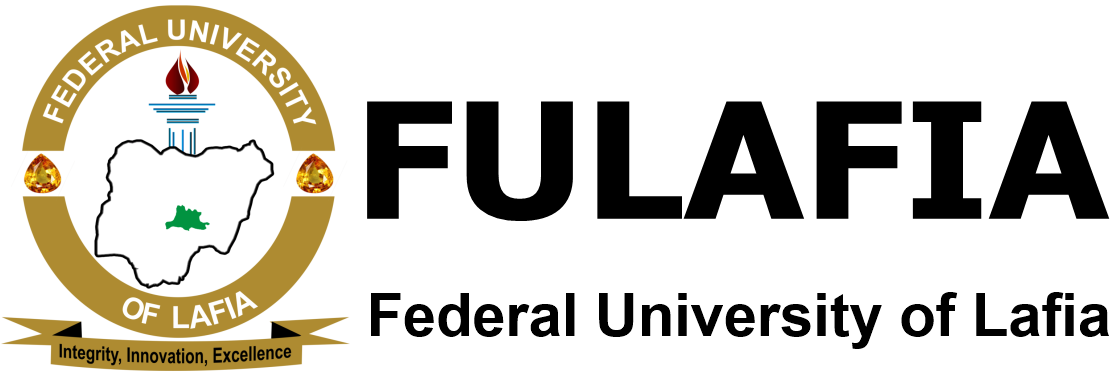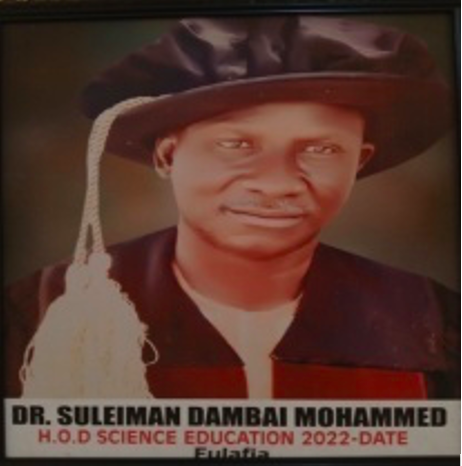
About Us
Our goals
Objectives:
1. Produce highly motivated conscientious and effective classroom teachers for all levels of our education system.
2. Produce teachers with proper leadership qualities.
3. Provide prospective teachers with intellectual and professional background adequate for their assignment and to make them adaptable to any changing situation not only in their country but in the wider world.
4. Encourage the spirit of enquiry, creativity and entrepreneurship disposition in teachers.
Programmes
1. B.Sc. Ed. Mathematics
2. B.Sc. Ed. Integrated Science
3. B.Sc. Ed. Physics
4. B.Sc. Ed. Chemistry
5. B.Sc. Ed. Computer Science
6. B.Sc. Ed. Biology
Staff of the department
HOD's profile
News Update
Conference & Workshop
Admission Requirements
ENTRY REQUIREMENTS
UMTE
Five credit passes in SSCE or equivalents in biology, chemistry, physics, mathematics and English Language.
Candidates must possess in SSCE or its equivalent, 5 credits passes including English Language and Mathematics. Credits in the relevant core science subject and any other science related subjects in not more than two sittings is also required.
DIRECT ENTRY APPLICATION
a. A pass at merit level in a relevant Diploma Programme (provided the University English requirement has been satisfied.
b. (i) Two (2) passes in relevant subject area at advanced level with SSCE/GCE O’ level credit passes in three other subject areas as not more than two (2) sittings or (ii) Three (3) passes in relevant subject areas at Advanced level with SC/GCE O’ level.
c. (i) NCE passes in two (2) major subjects at merit level or credit or its equivalent in three (3) other subjects. Education is accepted as a third ‘A’level subject.
(ii) Two (2) passes at the IJMB (Interim Joint Matriculation Board), examination or Cambridge moderated schools of Basic Studies Terminal Examinations in International Baccalaureate from a recognized institution with School Certificate credits equivalent in three other subjects (subject to University requirements).
(iii) Three passes in C (ii) above with a school Certificate credit or its equivalent in other subjects. The above qualifications in C (i) apply to students in colleges of Education to qualify for admission in the B. Sc. Ed Degree Programme.
d. English language and mathematics requirements in all cases, whether by Direct Entry or JAMB, a credit in English Language and a pass in Mathematics at the Senior or School Certificate/Secondary equivalent are requirement for Special Education.
English Language Requirement:
In the cases, whether by direct entry or UTME, the following shall apply:
A credit in English language at the Senior Secondary School Certificate WASC/GCE/Grade Two Teacher Certificate required. For candidates with hearing impairment, a pass English is accepted.
Mathematics Requirement:
At least a credit pass in Mathematics at the Senior Secondary School Certificate WASC/GCE/NECO Grade Two Teachers Certificate is required.

Welcome Address
Ladies and gentlemen, our most importantly, bright and promising new students, you are all welcome to the Department of Science Education, Federal University of Lafia.
It is with great pleasure and enthusiasm that I extend a warm welcome to all the new students joining the esteemed Department of Science Education, Federal University of Lafia. We are thrilled to have each and every one of you embark on this exciting journey of discovery and learning in the field of science education.
As you step into this vibrant academic community, you are entering a department that prides itself on a rich history of academic excellence, innovation, and a commitment to shaping the future of science education. The Department of Science Education, Federal University of Lafia is dedicated to fostering a dynamic and inclusive learning environment where students not only acquire knowledge but also develop critical thinking skills, a passion for inquiry, and a deep understanding of the scientific method.
As you embark on this academic journey, remember that education is not merely about acquiring information but about developing the skills and mindset to question, explore, and contribute to the world around you. The challenges and opportunities in the field of science education are vast, and we believe that each of you has the potential to make a meaningful impact.
On behalf of the entire Department of Science Education, I extend my best wishes for a successful and fulfilling academic year. May your time here be marked by curiosity, growth, and achievement. We look forward to witnessing your academic and personal successes as you contribute to the continued legacy of excellence in science education at Federal University of Lafia.
Once again, welcome to the Department of Science Education, Federal University of Lafia.
Thank you.

